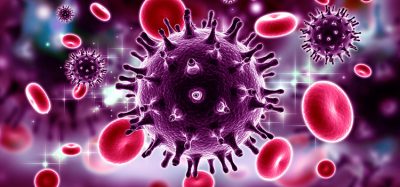K Navigator: an AI co-pilot transforming biomedical research
Posted: 19 May 2025 | Drug Target Review | No comments yet
K Navigator, a new AI-powered research co-pilot, is set to transform biomedical science by helping researchers explore complex data and accelerate discoveries.


Owkin has announced the launch of K Navigator, an intelligent research copilot that promises to reshape biomedical science. Designed to accelerate and enhance the process of discovery, K Navigator brings together artificial intelligence, multiomics data and intuitive user experience to help scientists unlock complex biological insights faster than ever before.
A new era for biomedical discovery
At its core, K Navigator is an agentic playground – a dynamic environment where researchers can explore, refine and validate scientific hypotheses. With the aim of driving the next leap in biology, K Navigator facilitates Owkin’s mission to build the world’s first biological artificial superintelligence (BASI).
By combining deep patient-level data with advanced reasoning capabilities, the platform allows researchers to understand disease complexity to expedite the next generation of medical breakthroughs.
Biomarkers aren’t just supporting drug discovery – they’re driving it
FREE market report
From smarter trials to faster insights, this report unpacks the science, strategy and real-world impact behind the next generation of precision therapies.
What you’ll unlock:
- How biomarkers are guiding dose selection and early efficacy decisions in complex trials
- Why multi-omics, liquid biopsy and digital tools are redefining the discovery process
- What makes lab data regulatory-ready and why alignment matters from day one
Explore how biomarkers are shaping early drug development
Access the full report – it’s free!
Seamless exploration through natural language
K Navigator offers a single natural language interface that streamlines the research process. Scientists can interact with the platform conversationally to visualise complex datasets, refine their research questions and identify new insights.
The platform’s speed and depth also allow it to support literature reviews across 26.5 million scientific articles, uncovering hidden or unpublished research areas, and leveraging 19 biomedical databases containing data from thousands of patients.
Exclusive access to spatial transcriptomics
One of K Navigator’s standout features is its exclusive access to spatial multiomic data at single-cell resolution from MOSAIC Window, a subset of the largest spatial omics dataset in oncology. This dataset, produced by top academic institutions in Europe and the US, allows researchers to achieve insights and precision unmatched by any other AI tool in the field.
In performance benchmarking, K Navigator has demonstrated superior capability in analysing public datasets, matching industry-leading models such as OpenAI’s GPT-4-based models and outperforming them in detecting cancer-related patterns.
Free for academia, built for collaboration
K Navigator is available free to academic researchers, supporting Owkin’s vision of fostering an AI-driven collective intelligence in biomedical research. The company is collaborating with leading global institutions to refine and evolve the tool.
Upcoming updates will introduce:
- Seamless collaboration and result sharing
- Project organisation tools
- Advanced histology features like filtering, grouping, heat mapping and slide analysis.
Later this year, Owkin will launch K Pro, an enhanced version of the AI copilot tailored to the pharmaceutical industry. K Pro will assist in data exploration and drug development, making complex biomedical research more efficient.
Expert praise from the scientific community
Dr Ingo Ringshausen, Principal Investigator at University College London, praised K Navigator’s usability, saying: “After my first hands-on experience with K Navigator, I was immediately struck by its exceptional ease of use. The potential impact for research teams is obvious, in particular thanks to its robust multiomics patient data exploration capabilities.”
K Navigator is an amazing product that gives us the autonomy we’ve been missing to explore data independently
Dr Cécile Alanio, Deputy Director of Clinical Immunology Laboratory at Institut Curie, added: “K Navigator is an amazing product that gives us the autonomy we’ve been missing to explore data independently. It empowers researchers while enabling bioinformaticians to focus on more complex analytical challenges. The features are truly impressive; it allows us to get a feel for the data – which is what I love most about it.”
The vision: productising discovery
Commenting on what prompted the tool’s development, Owkin Co-founder and CEO Thomas Clozel said: “Over the past century, we’ve made tremendous progress in chemistry; progress that has only accelerated with the help of AI. But biology is a different challenge altogether: it’s too complex for the human mind alone, with its vast networks of genes, cells and interactions.” He continued, “To truly understand disease and develop cures for unmet medical needs, we need to productise research by augmenting and accelerating discovery at every level. That’s why we developed K Navigator. The aim for K is to curate large language models and foundation models with patient-level data at scale, so we can move closer to ground-truth biology and finally capture its full complexity.”
With K Navigator, Owkin sets a bold new standard for what AI can achieve in life sciences, merging powerful technology with quality human research.
Related topics
Artificial Intelligence, Big Data, Bioinformatics, Biomarkers, Cancer research, Drug Discovery Processes, Genomics, Informatics, Machine learning, Oncology, Precision Medicine, Proteomics, Translational Science
Related conditions
Cancer
Related organisations
Institut Curie, Owkin, University College London








